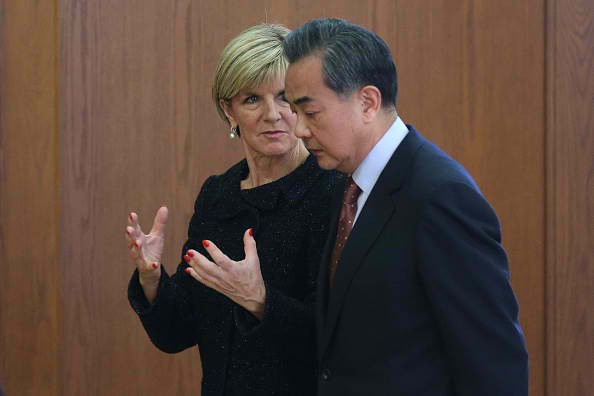Amid rising tensions between the China and the U.S. over the South China Sea dispute, Chinese Foreign Minister Wang Yi said that conflict between the two superpowers would not amount to a winning solution, saying that neither of them cannot afford to start one.
Wang's comments in an Australia press conference emerge as an attempt to diffuse any pressure between China and the U.S., given the rise of Donald Trump to the White House, Reuters reported. The billionaire turned politician is known for his brash anti-Chinese statements in emphasizing his "America First" policy.
Downplaying the possibility of an armed conflict between China and the U.S., Wang emphasized that both countries have gone through thick and thin in resolving differences, citing the comments of U.S. Defense Secretary James Mattis on the importance of exhausting all diplomatic avenues.
Wang remarked that China is committed to fostering lasting peace, but he nonetheless criticized Trump's protectionist stance, saying that It would do no good in propagating inclusiveness as the global economy expands towards greater sustainability.
Despite Chinese President Xi Jinping's keynote remarks during this year's World Economic Forum on China's plans to have a greater role in the international community, Wang said that the country does not seek a global leadership position, citing its need to focus on domestic development first.
Meanwhile, Australian Foreign Minister Julie Bishop urged Wang to consider joining the Trans-Pacific Partnership (TPP)--a trade pact exited by the U.S. through Trump, who stressed his preference for bilateral agreements.
Wang, for his part, committed to exploring possibilities to connect China's Belt and Road Initiative to the development of Australia's frontier Northern Territory, a vast expanse of land on the continent that has yet to develop infrastructurally due to the lack of willing investors.



























